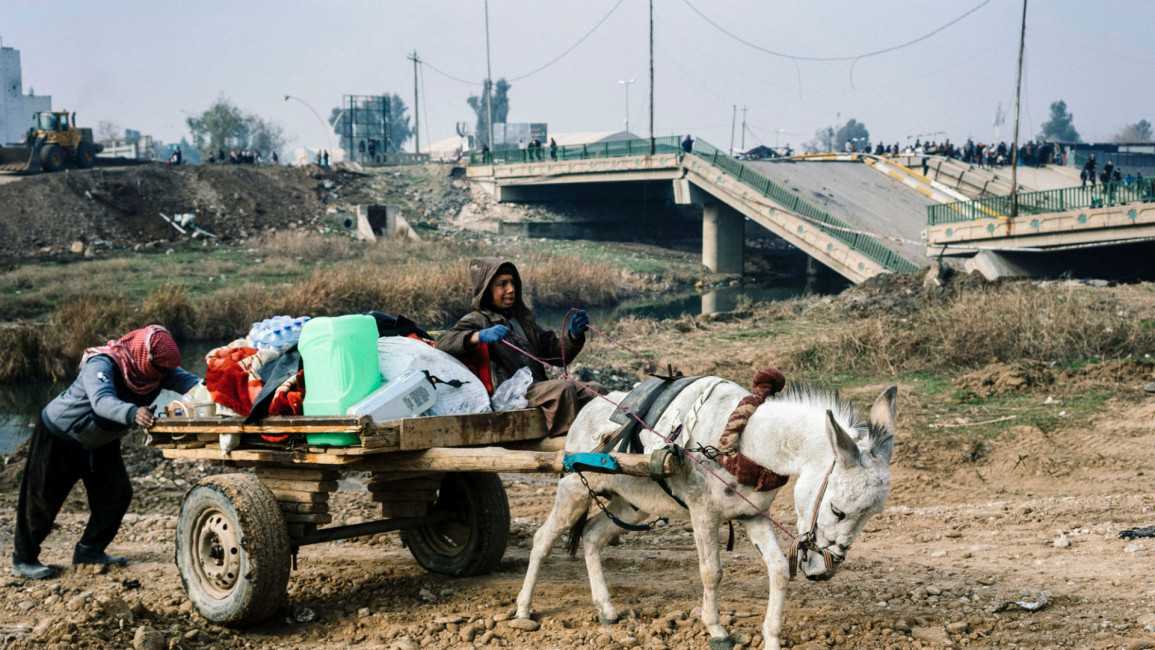750,000 stuck in western Mosul as battle looms
According to aid groups conditions in the city have been deteriorating since November when forces fighting the Islamic State group cut off supply lines to the west when capturing the east of the city.
Andres Gonzalez, Oxfam’s country director in Iraq, said: “This next phase of fighting carries the highest stakes yet for civilians. The idea that families could be trapped amid heavy fighting - particularly in the narrow streets of the Old City - without any safe means of escape is a terrifying prospect."
“Oxfam is calling on all armed forces to avoid the use of heavy weapons in populated and built up areas, including mortars and artillery, and to provide genuinely safe escape routes to avoid the high number of civilian casualties seen so far,” Gonzalez added.
Aid organisations are in a state of high alert in expectation of renewed attempts to force IS out of Mosul altogether. It is hoped that the Iraqi-led military effort will uphold the pledge of Prime Minister Haider al-Abadi, to do everything possible to ensure the safety of civilians.
Despite Abadi’s commitment, approximately 2,000 civilians were killed or injured in the first three months of the offensive to recapture Mosul. Over 190,000 people fled their homes, although around 30,000 have now returned.
Civilian accounts suggest that non-combatants have been targeted by IS during battles to retake the east of the city, and civilian families have also been killed by US airstrikes.
 |
The UN Humanitarian Coordinator in Iraq, Lise Grande, said last month that 47 percent of all casualties sustained in the military operation since 17 October have been civilians |  |
Now, with routes out of Mosul severely limited – bridges and roads having been destroyed - there is a very high risk that imminent fighting will incur further civilian casualties.
Oxfam and other aid organisations are readying aid supplies to help respond to a possible further influx of up to 250,000 people when the next phase of the military offensive begins.
Blankets, heaters, hygiene kits and other vital supplies have been distributed to villages south of Mosul where more people are likely to flee.
The UN Humanitarian Coordinator in Iraq, Lise Grande, said last month that 47 percent of all casualties sustained in the military operation since 17 October have been civilians.
The UN Office for Coordination of Humanitarian Affairs reports that over 1,675 wounded civilians were sent to Erbil’s main hospitals to receive trauma care and at least 312 civilians were treated at a surgical hospital in Bartallah between 17 October 2016 and 25 January 2017.
Reports on the numbers of civilians treated in hospitals and trauma centres do not reflect the total number of civilians killed and injured.
Doctors have told The New Arab that some residents of western Mosul have checked themselves into hospitals suffering from malnutrition.
"The West Bank also has a far greater population density," said Gareth Browne, reporting from northern Iraq.
"Excessive coalition use of artillery or air power will likely led to significant civilian casualties. This will blunt one of the most critical weapons in the fight against IS - its senior leadership and communication networks have been decimated by US led air power."
One Golden Division officer remarked: "We are going to burst the balloon, soon this movie will be over but it could be bloody."



